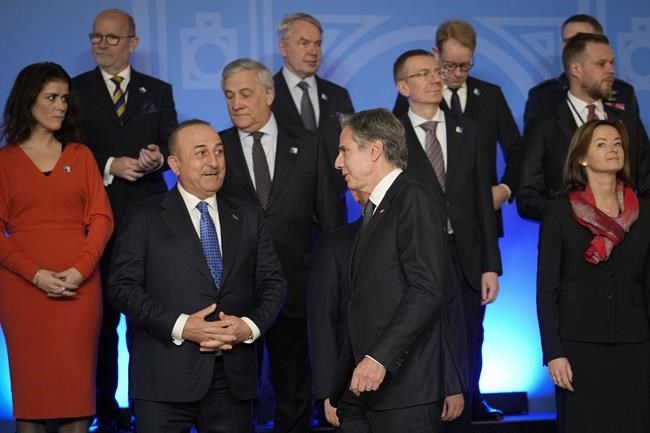Turkish Foreign Minister Mevlut Cavusoglu is being hosted by US Secretary of State Antony Blinken in Washington, DC for a meeting that is anticipated to be dominated by a potential F-16 fighter jet sale and Turkey’s opposition to Sweden and Finland’s NATO membership.
Since US President Joe Biden took office almost two years ago, the top diplomat of Turkey made his first official visit on Wednesday. This, according to observers, may reflect the complex nature of the two nations’ relations. Previously, Blinken and Cavusoglu had encounters outside of NATO and UN gatherings.
Blinken opened the discussion by saying, “We are close allies and partners. That doesn’t mean we don’t have problems, but when we do, precisely because we are allies and partners, we work through them.”
Russia’s invasion of Ukraine, Syria, and energy cooperation were predicted to be the key issues by US and Turkish officials prior to the meeting.
Turkey has received credit from the US for several of the things it did when Russia invaded, particularly for mediating the talks on the grain corridor.
However, concerns over Ankara’s growing ties to Moscow continue. Since Turkey purchased Russian missile defense systems in 2019, which caused Ankara to be dropped from the next-generation F-35 fighter jet program, relations between the NATO allies have become strained.
Despite support from the Biden administration, some prominent members of Congress oppose Turkey’s current plans to purchase F-16 jets from the US.
Cavusoglu mentioned the potential sale in his opening remarks, stating, “We expect permission in keeping with our shared strategic interest.”
The Kurdistan Workers’ Party, or PKK, and ISIL (ISIS), both of which Ankara views as dangers from outside its southern border with Syria, were specifically mentioned by the Turkish official as topics of discussion during the meeting.
US officials are growing more concerned about Turkey’s potential plans to launch a fresh military campaign across the border against Kurdish armed groups and its desire to normalize relations with Damascus.
The primary obstacle preventing Sweden and Finland from joining NATO, which needs the consent of all 30 members, has been Turkey. Hungary and Turkey have not yet approved the applications.
Turkey has charged the nations with harboring Kurdish organizations that it regards as “terrorists.” It asserted that Sweden in particular must first adopt a more definite stance against these organizations and the people it holds accountable for a 2016 coup attempt.
Erdogan stated on Monday that for the two nations’ application to join NATO to be approved by parliament, they would have to expel or extradite up to 130 “terrorists” to Turkey. Nordic officials have stated that the demands are excessive.
Finland expressed its optimism on Tuesday that the visit of the Turkish foreign minister to the US will help to break the deadlock.
The conference was called after the US Department of State formally informed the congressional arms control committees in the US Senate and House of Representatives that it intended to move forward with the $20 billion F-16 sale to Turkey.
The action sparked a flurry of statements from lawmakers criticizing the agreement, including from Democratic Senator Bob Menendez, who chairs the Senate Foreign Relations Committee, whose leaders examine significant international arms deals.
Democratic Senator Chris Van Hollen said in a statement to Reuters that “[Turkish President Tayyip] Erdogan’s] persistent attacks on our Syrian Kurdish partners, and continuous cozying up to Russia – including delaying Sweden and Finland’s participation in NATO – remain substantial concerns for concern.”
He continued, “As I’ve mentioned before, we need confidence that these concerns will be addressed for Turkey to get the F-16s.
Erdogan’s top foreign policy advisor, Ibrahim Kalin, said to reporters on Saturday that Washington’s demands for the fighter jet delivery were “endless.”
He said that he hoped the F-16 sale wouldn’t be “held hostage” by Sweden and Finland’s decision to join NATO.
Although Congress has the authority to do so, it must pass legislation in order to do so. The two-thirds majority in both chambers needed to override a presidential veto have not previously been achieved by legislators.





